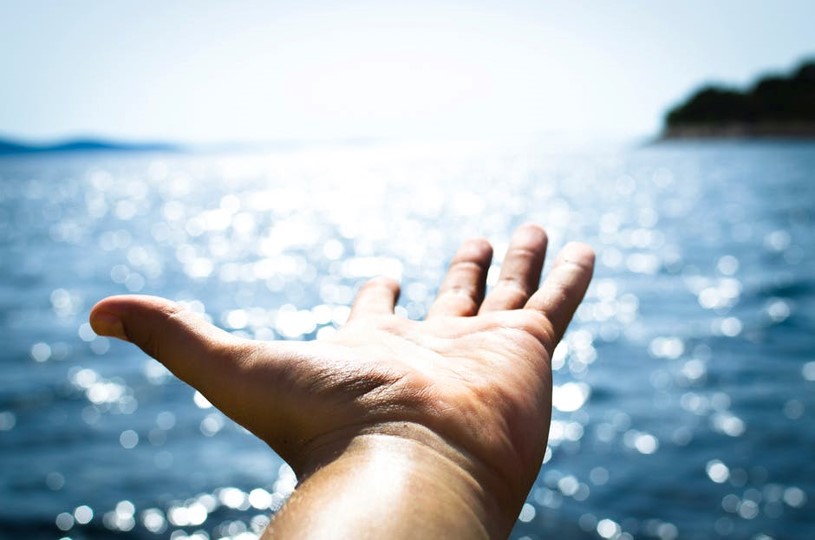
The focus of our discussion in the Sleep Module is to improve sleep quality so that we are well-rested. Most of “How to do this” is targeted at the last 1-2 hours before going to bed, what we refer to as transition time. While there are several aspects to this, particularly with what we have at our disposal, a major part of what we discuss is light exposure.
So we were glad to see this: A recent study in Current Biology looked at sleep patterns of three pre-industrial societies, one each in Tanzania, Namibia and Bolivia. Some key observations include the following:
- The groups lived absent of electricity – no lights or external temperature controlling systems. So they were exposed to seasonal variations in weather, temperature and sunlight. Perfect groups for studying sleep patterns!
- Not a single person had a BMI greater than 30. Not one. Obesity was non-existent!
- On average, the three groups spent 7.0-8.5 hours in bed with 6-7 of those hours spent sleeping. So for the most part, they don’t sleep through the night.
- Two of the three groups lived far enough south of the equator to experience significant changes in darkness and light exposure depending on the season. During the time of year when darkness was longer, these groups slept, on average, nearly one hour longer than when days were shorter.
- They don’t take naps! Sensors used to determine whether they were awake or asleep recorded 10 naps over 574 days. Additionally, all of these were during the summer, when days were longer. This could be related to shorter nights and tiredness or maybe a rest period during the hottest times of the summer days. But one nap every two months doesn’t show much of a pattern.
- Less than 3% have trouble falling asleep and staying asleep (1.5% for the former and 2.5% for the latter). This is very different than industrialized societies, where it can be as high as 30%.
As we discuss in our seminars, the transition time is important. It prepares our body to fall asleep and enter a normal sleep pattern throughout the night. Given the statistics on sleep deprivation and the fact that so many are tired all the time, it’s safe to say that most of us don’t do a good job of “transitioning” our body for sleep.
Takeways and things at our disposal.
There were a lot of important observations in this study, but a couple stand out. The first is that obesity is non-existent!
While there are certainly differences in physical activity, given that their primary mode of transportation is on foot. Other “things” are probably more important. For example, the absence of electricity means no lights, which means no TV, cell phone, tablet, computer or even lights. When it is dark and they are tired, they go to sleep. In industrialized societies, when it is dark and people are tired, they have cake, chips, ice cream, etc… at their disposal. So they plop on the sofa, eat and stare at the TV or other technology device. This light exposure (and snacking) is not a good mix for our transition time.
Another important observation: For the most part, they don’t sleep throughout the night! In every seminar we do on sleep, we are guaranteed to get a question like this:
I wake up and sometimes don’t fall back asleep for 15, 30, 45 minutes or even an hour. Why?
The conventional wisdom is that we are supposed to fall asleep and stay asleep. This is clearly not the case, as shown in this study (and countless others). But it is apparent, based on how frequently we get this question, the message isn’t being conveyed. So as health professionals, we need to do a better job of letting people know this is normal. And this is important. When you make a statement like this and ask why, there is clearly some concern. Concern leads to worry, worry leads to stress and stress makes it harder to fall back asleep.
So we clearly need to do a better job at letting people know, that for the most part, this is a normal occurrence.
2 things to do right now and improve your sleep transition time!
Sleep better tonight by:
- Start limiting your exposure to light about one hour before bed time. Turn off the bright lights and turn on softer ones so you you can see. This includes the television and all of your electronic gadgets. If you can’t do without your computer, download this and install it on your computer. It blocks the most offensive lights.
- If you think you are hungry and not tired, think again. And if you are hungry, eat a little something that is not processed (In other words, skip the stuff mentioned earlier).
Overall, sleep is important to your health – a lack of quality sleep is associated with nearly every chronic condition you can imagine. The fact that obesity was non-existent in these groups provides further support. To improve your health, you must sleep better. To sleep better, you need to be better during the transition time. These two tips will help you do that.
After a few days of better sleep, you won’t believe how good you feel.



